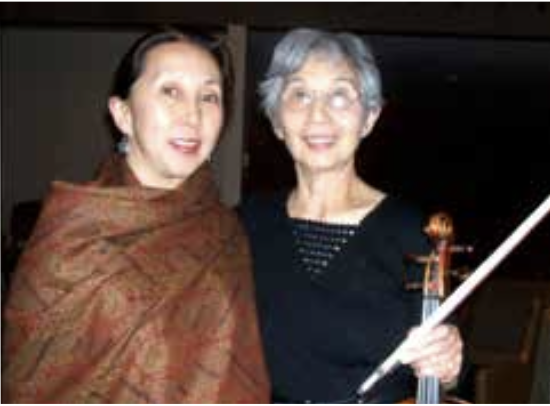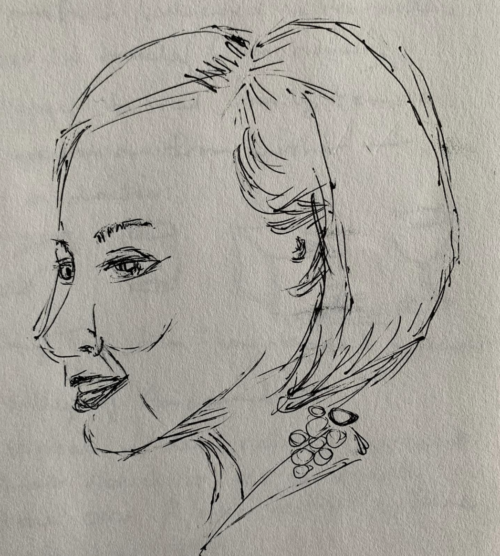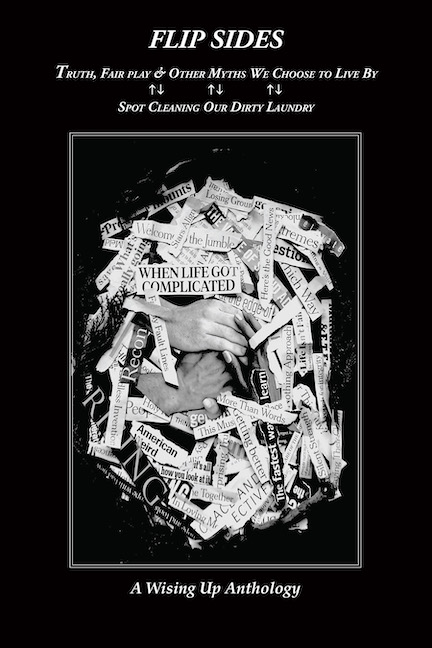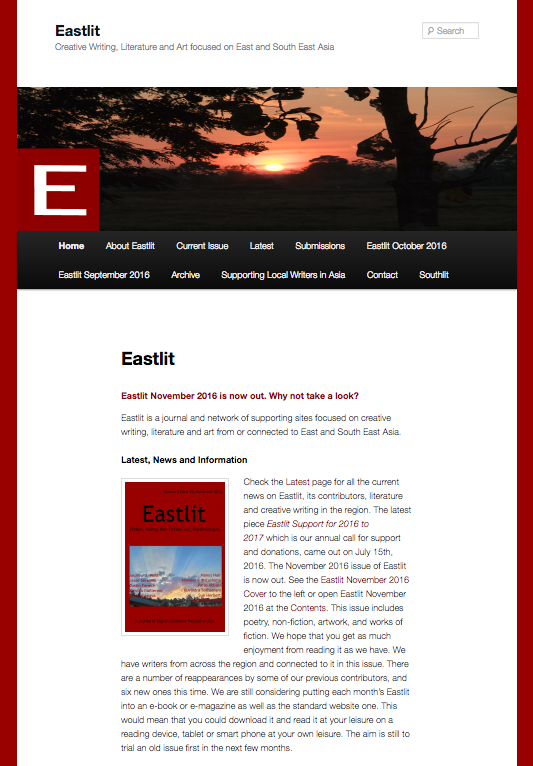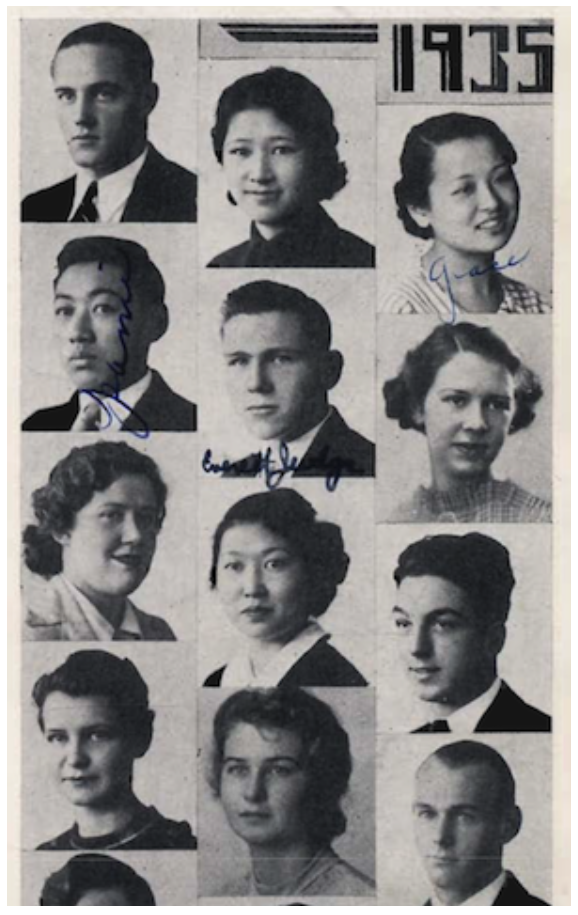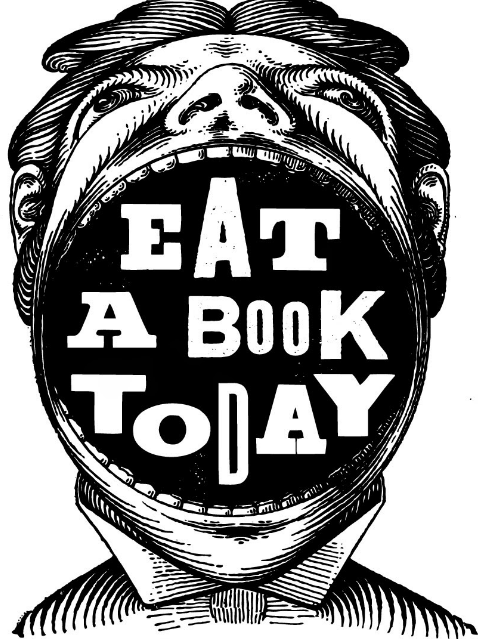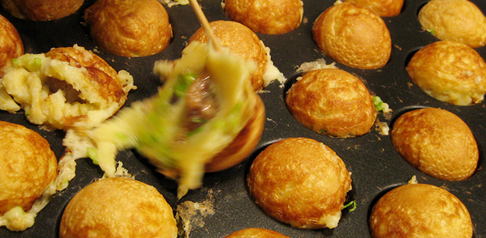
A writer friend asked me if I had written many short stories. I’ve played around with the form often but only published one. Three years ago I published this short story with the now-defunct Fat City Review. I am a bit chagrined when I read it now but here it is for your reading pleasure.
The old waiter brought Matt a glass of beer.
“Your neighbor’s a gang member. That’s why you got that place so cheap.”
Matt’s heart sank. A gang member. Thugs, drug dealers, killers. Shit. He felt foolish for congratulating himself on his good fortune. Finding a one room apartment so close to campus. Dad was going to have a cow.
In fact, after Matt had signed the lease, he was so happy that he stopped at the Corner Cafe to celebrate. The Café was the first place Matt ate at when he first came to New York City last year. An ordinary place for the locals but exotic for a kid from out West. Worn seats, faded carpet and waiters who didn’t try to become your best friend. Matt shared his good news with the waiter who served him. But the old guy just sighed. Another rube from out of town.
Matt thought, “I’m an idiot”
The old man noticed Matt’s dejection. “Son, don’t worry. Your neighbor is one of the lower guys in the family – Charlie is his name. If you stay out of his way, he probably won’t bother you.”
Probably won’t bother me. Great.
Loyalty to the gang, to the family, big gorillas with knuckles dragging on the floor. That’s what a gang member meant. There’s nothing glorious about them any more now that Matt graduated from college and managed to get into the Masters program in sociology at Columbia. It was more of a continuation of college than a professional school since he still wasn’t quite sure what he wanted to do. He only knew what he didn’t want to do. He didn’t want to be a businessman. He didn’t want to be a lawyer. Dad was watching him like a hawk even after he moved across the country. If he got into any kind of trouble, Dad would hit the roof. He could just hear him now. “You never did have much common sense. You should have checked with me before you signed the lease.”
Well, they didn’t need to know. It was his own business. Anyway, he was never going to invite family to his place while he was a student. When Matt started looking for his own on place in the Upper West Side, the man in the realtor’s office had discouraged him from looking at this cheap listing but Matt immediately liked the look of the red brick building. No nonsense. Clean and close to the campus. Six small units, two units on each floor. His place was on the top floor. With his own tiny bathroom and kitchen, he’d have a lot more privacy than he did at the graduate dorm. Hearing every cough and fart of the fellow residents got old. And unlike a lot of the one room apartments squeezed between tall buildings, sunlight actually came in through a window in back. There was even a little bit of a view – if he leaned to one side, he could see a corner of Riverside Park, glimmering like a green oasis in a grey desert.
He couldn’t help bragging about his place to his little sister, Sara, when she called. As far as she was concerned, her brother had moved to the moon.
“Mattie. Mattie. It sucks here. Dad and Mom have no one to pester so they’ve started picking on me.”
Matt envied Sara. She could do whatever she wanted without getting criticized every step of the way. “Why are you wasting your time? What are you doing with your life? Have you started thinking about your career? On and on and on.” Getting away from Dad, going as far as he could, was what Matt wanted. Columbia was a label Dad could use to keep up appearances when he bragged to his office. “It’s not Harvard but it’s one of the Ivies,” he could say.
Matt moved in right away. He climbed up the narrow stairs, his footsteps seemed to announce. Here… I…come…up…the….stairs. The hallway, without any carpeting, didn’t help. As he walked by his neighbor’s door, he couldn’t help but tread lightly. Was Charlie looking out of the peephole in his door? Getting a glimpse of the hick who moved in next door?
For the first few days, Matt listened carefully to figure out what his neighbor’s routine was. Even resorting to placing the drinking glass on the wall. No sense in running into him on the way to classes. On his way home, he stopped at the used bookstore across the street and pretended to get engrossed in a bargain book as he peeked sideways at his building, making sure Charlie wasn’t on his way in or out before he dashed up the stairs, leaping over two steps at a time.
But a month later, Matt saw Charlie for the first time. The back of his head as he opened the front door and left. A short dark guy. About 25, wiry, wearing a white T-shirt and jeans which made him indistinguishable from the thousands of other guys on the street. But then he glimpsed the blue tattoo on his neck, snaking out of his T-shirt and up behind his ear. In the movies, a gang member wore flashy sunglasses and gold chains but Matt had never seen a real one. The criminals back home were probably like annoying baby raccoons next to the wolves here in this city. Matt prayed as he stood frozen in the hallway. Oh, don’t look at me. Don’t look at me. When Charlie got all the way down the stairs and the front door slammed shut, Matt discreetly watched him through the window.
By the middle of the semester, avoiding Charlie became such a routine part of his life that Matt forgot about it when he talked with his sister, Sara. She was all excited about the Cosmopolitan Club she joined on campus. She was having a lot of fun meeting all the foreign students. Even as a freshman, she was given the job of Hospitality Coordinator and her first assignment was to take care of the foreign students who had come for the semester.
She said, “Mattie, I have a favor to ask. A Japanese student, Taro, needs a place to stay when he visits New York City over the winter holidays. He’s a really sweet guy. I told him he could stay with you.”
Japanese. Matt remembered the only other Japanese person he knew. The college girl who visited his middle school when he was 15. Noriko. She was fun. She looked so much younger than the other teachers. And she was cute. Noriko showed the kids how to fold origami. Paper birds, people, stars, and even paper butterflies.
Matt fell in love with her but was disappointed when he found out half of the class had secretly fallen in love with her, too. After Noriko went back to Japan, she sent a really nice letter back to the class. Matt was disappointed she didn’t specifically mention him.
“Sure. That’s OK,” he blurted out. Then he remembered about Charlie. Shit, he thought, we’ll just avoid him. No point in getting worried about something that’s not going to happen. He didn’t mention it to Sara.
December brought the brutal weather from across the Atlantic. Icy winds that gathered speed as they blew through the city canyons. The cold in New York City went right through his coat and penetrated his bones. Matt’s feet got soaked in the black, muddy pools of slush in the street. The only way to really warm up was to soak in a hot bath. The little tub in Matt’s apartment was a lot smaller than the one at home but he could still get the hot water up to his chin if he propped his legs up on the wall and lay back. With only the sound of water dripping, Matt heard murmurs from Charlie’s side. Charlie’s door opening and closing. Voices of men. Laughter. Music. Charlie must be having friends over. Gang member friends.
Matt got out, too nervous to relax in the tub. Throwing on a sweatshirt and jeans, he went to grab a cold beer from the tiny fridge. He wiped the sweat off of his face with the hand towel.
Pushing his door open a crack, Matt saw the hallway was wet with the dirty sleet tracked in from the street. Charlie’s door was halfway open and the back of a man’s shoulders and legs were visible. Their conversation a murmur. Then the man stepped back from the door and a flash of a white envelope disappeared into his jacket. The man glanced at Matt as he turned to go down the stairs. A glassy look which didn’t even see him. Matt’s shoulder muscles tightened back into a knot. He shivered. There must be a dozen guys in there now. Their loud laughter drifted through the door in waves. One guy had a hyena laugh. Matt locked the door and turned off his lights. Burying his head under the covers, he drifted off into restless sleep.
Over the next month, a recurring dream Matt had was one of running. Running from building to building as gang members chased him. He had to get to his classes. But he had to dodge knives slicing through the air. Bullets zinging by his head. Ducking into doors as he tried to get to classes on time. Matt blamed the dreams on too many movies.
Taro arrived the first day of winter break. He was just as Sara had described him. Real earnest. Looked like he was fifteen even though he was 25. His jet black hair stuck out in all directions like the feathers on a new chick. Skinny as a rail but dressed decently. His English was a little tricky to understand but his smile was so genuine that it was hard not to like him right away. The city didn’t seem to faze him at all.
Matt planned to show off by taking Taro to the Met, the Guggenheim, and maybe a Broadway show. But Taro yawned as they walked through Matt’s favorite exhibit at the museum – the monuments of ancient Egypt. Taro saw through Matt’s ruse of knowing anything about the city. So Taro negotiated himself into taking charge of the day’s activities through a series of pointing, nods, and half-conversations. With Japanese guidebook in hand, Taro dragged Matt through the labyrinth of public transportation to strange little enclaves in the city. Sunset Park. East Village and Le Petit Senegal. Places Matt had never heard of.
At first, Matt panicked when Taro disappeared into some hole in the wall. That Japanese guy was surprisingly quick. Several times after getting off of the bus or emerging from the subway, Matt found himself spinning around looking for the black tufted head which had gone ahead. Taro’s head would be smoothly bobbing into the sea of people while Matt clumsily swam through the crowd to catch up.
After a third day of chasing Taro through yet another unfamiliar part of the city, Matt suggested they grab a pizza and come back early to the apartment. There was no point in trying to impress his visitor anymore. It was all Matt could do to keep up with this relentless tourist. He was on the verge of nodding off on the sofa when someone knocked on the door. Taro jumped up and opened the door. It was Charlie.
“Hey man. I’m your neighbor.”
Matt froze. It was the first time he had ever heard Charlie’s voice. He sounded oily and slick.
Taro stuck out his hand and cheerily said, “My name is Taro. I come from Japan. Nice to meet you.”
Matt fell over himself as he stumbled over to the front door.
Charlie smiled and slapped Matt’s back. “Hey, neighbor. Aren’t you going to invite me in to meet your foreign friend?” And he walked right in, past Taro and Matt, with a paper bag. Charlie made himself at home on the floor, pulled out a six pack of beer out of the bag and offered one to Taro. Taro smiled, accepted the beer and sat on the floor across the cheap coffee table.
Charlie looked at Matt and nodded toward the sofa. Matt obediently sat himself between the muscled thug and the Japanese guest. Matt thought, Oh, my God.
Charlie leaned in toward Taro.
“Hey, man. I’m Charlie. I love sushi.”
Taro smiled. “I love soul food.”
Charlie laughed, “You’re kiddin, right? Soul food?”
Taro pulled out his camera. “I love hush puppy.” And proceeded to show Charlie a photo of the basket of round fried balls they had earlier in the day in the Hell’s Kitchen neighborhood. Taro pointed to them and said, “Be-rii good. Be-rii good.”
Charlie laughed with delight. He looked at Matt. “You showing him this stuff?”
Matt smiled weakly. “No. It wan’t my idea.”
Charlie slapped Taro on the back. “My favorite, too. But you gotta try the homemade kind.”
Taro beamed. A pang of jealousy hit Matt. Taro pulled out a small photo album from his bag and pointed to a shot of a small Japanese food stall. “You try tako-yakee. Be-rii good Japanese food.”
Where did this album come from? Taro had never shown this to Matt. Charlie peered at the photo. A grizzled looking Japanese man was using a stick to poke at round, doughy balls in what looked like a small worn muffin pan.
“Looks like doughnut holes,” he said.
Taro said, “No. No. Not donuts. This is oku ta pasu.”
When Charlie and Matt looked at each other with puzzlement, Taro jumped up and began flailing his arms. He puckered his mouth and opened his eyes wide as he danced in a circle. His arms were waving, Michael Jackson style.
Charlie laughed, “What the hell? What is that supposed to be?”
Matt mumbled, “I think he means octopus.”
Taro said, “Yes! Yes! I love tako-yaki.”
He proceeded to show Charlie and Matt more photos of people eating the small balls with toothpicks. Apparently each ball held a tiny chunk of octopus. They were using paper plates and standing around the food cart. Taro’s other photos were of similar food carts or stands. Some showed Taro smiling and holding up an unrecognizable morsel of something.
Charlie said, “Where’s the sushi?”
Taro explained that sushi was not street food. He ate what was cheap at food stalls and dives. But, obviously, this was the food he loved.
Charlie said, “Well, I’ll be dammed. I thought everyone over there ate sushi.”
Matt’s stomach ached from the effort of keeping still. He wanted to run out the door. But if he left, Charlie might get mad. Would a gang member come after him? And Sara would yell at him, “You did what?! You left Taro with a gang member?” And then of course, Dad would blame him for everything.
So Matt willed himself invisible and slumped into the sofa. Charlie kept asking questions.
“So what’s this stuff? What’s it taste like?”
Taro was delighted at his audience and kept going. Yakitori, kushiyaki, oden, yaki-imo. On and on and on. All Japanese street food of some sort. Finally, after going through dozens of photos and various pantomimes, Charlie got up.
“Gotta get going.” Taro started to get up, too.
Charlie pressed down on Taro’s shoulder, “No. No. Don’t get up. Thanks for telling me about your food.”
Charlie warmly smiled at Taro but then his face went back to the tough mask. He glanced at Matt and jerked his head toward the door. Matt thought, “Oh, shit. Now he’s going to beat me up.” Matt stood up and walked Charlie to the door. There weren’t any tattoos visible this time but he noticed a scar on the back of his neighbor’s head. A fine white line where the hair wasn’t growing. Was that from a knife fight? A bullet? Charlie turned around and stuck out his hand. Matt nervously put out his, the cold sweat in his palm pressing against the warm, sandy skin.
Charlie said, “Hey, man. That was cool. I learned a lot.” He waved back at Taro and Taro smiled.
Matt watched him go back into his apartment. Matt closed the door and turned back to Taro. He probably had no idea how dangerous Charlie was. Matt said,“You probably should stay away from that guy.”
“Why?” said Taro.
Matt mustered up his fatherly tone. “That guy is trouble. He’s with a gang.”
Taro considered the information, then looked at Matt with a steady gaze. “I am burakumin.”
Matt said, “What? What is…burakumin?”
Taro said, “You know samurai?”
Matt nodded.
“Samurai top class. Burakumin bottom class.”
“But…but everyone is equal in Japan, aren’t they? Japanese are all the same.” As soon as Matt said that, he knew he was wrong.
Taro said, “Burakumin are like…..gang. But in Japan for many, many years. Everybody knows. My father burakumin. My grandfather burakumin.”
Matt didn’t know what to say. Why did he feel like an idiot… again?
A few days later, Taro told Matt, he had plans to visit Long Island on his own so don’t wait up for him. Matt said, “Sure. Fine. Have fun. I’ll probably go out.”
The East Asian Library on campus was closed for the holidays so Matt went to the public library. When Matt asked the older female librarian about burakumin, she snapped, “Look it up yourself, young man.” New Yorkers are so friendly… not. But the information he found only confused him even more. Burakumin weren’t an ethnic group. They weren’t even poor. They were the same Japanese as 99% of the other citizens of Japan. The only difference was their original jobs hundreds of years ago – handlers of leather or the dead. Why would it matter any more? It’s not like India, right?
The bookstore across the street was quiet. Matt wandered through the narrow dusty aisles, picking up familiar titles. Catcher in the Rye. Zen and the Art of Motorcycle Maintenance. Naked Lunch. But none of them seemed to lift his depressed mood. He checked the bins near the front of the store one more time. 1,000 Places to See Before You Die. This made him even more depressed. 1,000 Places You Know Nothing About was more like it. It was growing dark and he’d be alone again. Another thrilling night with Conan O’Brien.
Two days later, just when Matt was beginning to worry about Taro, the phone rang. It was an unlisted number.
“Hallo, Matt?” Taro’s voice sounded tinny.
“Hey, Taro. When are you getting back?”
“Matt. I want to tell you…I am not coming back.”
“Taro, I don’t know if that’s a good idea…,” Matt started but Taro paid no attention to the advice.
“Matt-san, you must not stop me. I cannot go back Japan. They will not let me marry Tomoko.”
Even if he had never had that rush himself – that real feeling of throwing everything into one person, that certainty – he recognized it. He could feel the months, maybe the years of agony in Taro’s voice. Would he ever be in love like that? But he had to caution Taro. “It’s not that easy in this country. You should think about it.”
Taro had already thought about it, judging from his quick reply. “Matt-san. Thank you for helping me. I am okay.”
“Taro, what am I supposed to tell Sara when you don’t go back?”
“Tell Sara-san thank you very much.”
One more try. Matt hated himself but couldn’t help it. He could already hear Dad. “Taro. What is your father going to say?” Silence.
“Matt-san, my father knows. This is my life.”
The silence was full of thought. Matt finally spoke. “Okay, Taro. I get it. Good luck to you.”
After a pause Taro said, “Why do American say – good luck? This is not luck. This is my decision.”
The phone call ended. Matt suddenly saw that this man was at a turning point in his life. He was leaving behind hundreds of years of pain and suffering. Leaving behind his father, his society, his country. Everything he knew and loved. Like millions of others before him, he was taking a leap of faith. A leap of faith into an unknown future. Taro had chosen his path.

